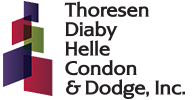Going private
Recently, the news media has given a lot of attention to initial public offerings using special purpose acquisition companies (SPACs). But there’s another major transaction that’s gaining momentum amid the economic chaos caused by the COVID-19 pandemic: privatizations. Going private (also known as delisting) has many benefits, including: Reduced accounting, regulatory and governance costs, [...]
New audit committee survey reveals trends on risks, ESG reporting and more
In late January, a survey entitled “Audit Committee Practices Report: Common Threads Across Audit Committees” was published by Deloitte and the Center for Audit Quality, an affiliate of the American Institute of Certified Public Accountants. The survey analyzed 246 responses, including 86% of respondents who served on audit committees of public companies. Here are [...]
Are you ready for the new disclosure requirements for government assistance?
Starting in fiscal year 2022, all entities — except nonprofit organizations in the scope of Topic 958, Not-for-Profit Entities, and employee benefit plans — must provide detailed disclosures about government assistance. Here are the details of the new rules. Defining government assistance The term “government assistance” may refer to perks and other incentives policymakers provide to [...]
4 levels of audit opinions
The first page of audited financial statements is the auditor’s report. This is an important part of the financials that shouldn’t be overlooked. It contains the audit opinion, which indicates whether the financial statements are fairly presented in all material respects, compliant with Generally Accepted Accounting Principles (GAAP) and free from material misstatement. In general, [...]
Take your financial statements to the next level
Spring is the time of year that calendar-year-end businesses issue financial statements and prepare tax returns. This year, take your financial data beyond compliance. Here’s how financial statements can be used to be proactive, not reactive, to changes in the marketplace. Perform a benchmarking study Financial statements can be used to evaluate the company’s current [...]
Audit disclosures: Why the fine print is important
Footnotes appear at the end of a company’s audited financial statements. These disclosures provide insight into account balances, accounting practices and potential risk factors — knowledge that’s vital to making well-informed lending and investing decisions. Here are examples of key risk factors that you might unearth by reading between the lines in a company’s [...]
How to forecast smarter
Forecasting key business metrics — such as sales demand, receivables, payables and working capital — can help you reduce excess inventory and other overhead, offer competitive prices, and keep your business on solid financial footing. Although historical financial statements are often the starting point for forecasts, you’ll need to do more than just multiply [...]
Rolling forecasts provide flexibility in uncertain times
Forecasting how your company is likely to perform over the next year can be challenging, especially when it’s unclear where the markets are heading. But accurate forecasts are critical when managing a business. For example, they may be used to order inventory, hire additional workers, apply for loans and credit lines, and evaluate investment [...]
Look to the future with a QOE report
Are you thinking about merging with or acquiring a business? CPA-prepared financial statements can provide valuable insight into historical financial results. But an independent quality of earnings (QOE) report can be another valuable tool in the due diligence process. It looks beyond the quantitative information provided by the seller’s financial statements. These reports can [...]
How to assess fraud risks today
Auditing standards require external auditors to consider potential fraud risks by watching out for conditions that provide the opportunity to commit fraud. Unfortunately, conditions during the COVID-19 pandemic may have increased your company’s fraud risks. For example, more employees may be working remotely than ever before. And some workers may be experiencing personal financial [...]

